Your basket is currently empty!
This week brought some of the most jaw-dropping stories we’ve seen all year. Here’s what you absolutely need to know: Let me walk you through the most important stories from this week that nobody’s really connecting. Because when you look at these together, you start seeing patterns that most people miss.
Key Takeaways
- A drug called IU1 could significantly extend human lifespan by enhancing cellular protein cleanup systems, with speculation about 250-year lifespans, though human trials haven’t started yet and current evidence is from fruit fly studies.
- The UK banned unlimited sugary drink refills at restaurants starting October 1st, 2025, as part of a broader government push to tackle obesity and reduce NHS costs, though critics call it overreach into personal freedom.
- UK police effectively decriminalized bike theft at train stations by refusing to investigate bikes stolen after being left more than 2 hours, bikes worth under £500, or thefts without clear CCTV evidence due to resource constraints.
- Canada’s Bill C-8 allows the government to secretly order telecoms to shut down internet and phone services with fines up to $15 million for non-compliance, raising concerns about political abuse after the 2022 Freedom Convoy bank account freezes.
- Nvidia’s CEO says plumbers and electricians will win the AI race, not programmers, because massive physical infrastructure buildouts for data centers require skilled trades more than coders.
- Warren Buffett made his largest deal in three years, acquiring Occidental Petroleum’s OxyChem unit for $9.7 billion, signaling long-term value in petrochemicals despite the renewable energy trend.
- EA is shutting down four major games in October 2025, including NHL 21, Need for Speed: Rivals, Madden NFL 22, and FIFA 23, highlighting the reality that digital game purchases are just licenses that can be revoked anytime.
- Snapchat will charge users for storing Memories beyond 5GB, joining the trend of free services adding paywalls once they’ve built a large user base.
- Barron Trump reportedly made over $80 million from crypto at age 19, reaching a $150 million net worth through World Liberty Financial, the Trump family’s crypto platform that generated $550 million in token sales.
- Meta signed a $14 billion deal with CoreWeave for AI computing power through 2031, underscoring the massive infrastructure costs of developing advanced AI models and the opportunity in picks-and-shovels AI investments.
- China is buying up British schools, raising concerns about curriculum influence, student data collection, and long-term strategic positioning in Western education systems.
- Emirates banned power banks on flights starting October 1st, allowing only one under 100 Watt Hours in cabin baggage that must stay under the seat, with no charging or use allowed onboard due to lithium battery fire risks.
- COVID vaccine sales are tanking, crushing Moderna and BioNTech stock prices and their founders’ fortunes as demand plummets and anti-vaccine sentiment grows, especially with potential RFK Jr. FDA policy changes.
- 50% of fast food ice samples contained fecal bacteria in a BBC investigation of McDonald’s, Burger King, and KFC locations, caused by workers handling ice with unwashed hands and improperly cleaned machines.
The Drug That Could Let You Live to 200 Years


Researchers at Osaka University have identified a compound called IU1 that could fundamentally change how we age. And I’m not talking about some anti-wrinkle cream here.
This drug targets something called proteostasis. That’s your body’s ability to clean up damaged proteins inside your cells. As you age, this cleanup system breaks down. Proteins start clumping together, causing everything from muscle weakness to Alzheimer’s.
IU1 works by blocking an enzyme called USP14, which normally slows down your cellular cleanup crew. When you block USP14, your cells can clear out damaged proteins much more efficiently. The drug activates both proteasomes and autophagy your body’s two main cleanup systems at the same time.
Researchers tested it on fruit flies and found it prevented age-related decline in these systems. The flies lived longer and stayed healthier. Now, the 250-year claim is speculative. We’re nowhere near human trials yet. But even if it extends healthy lifespan by 20 or 30 years? That changes everything about retirement, careers, and how you plan your financial future.
The longevity industry is exploding right now. Companies focused on anti-aging research are attracting billions in investment. This isn’t science fiction anymore. It’s happening in labs today.
UK Bans Free Soda Refills and Nobody’s Talking About It
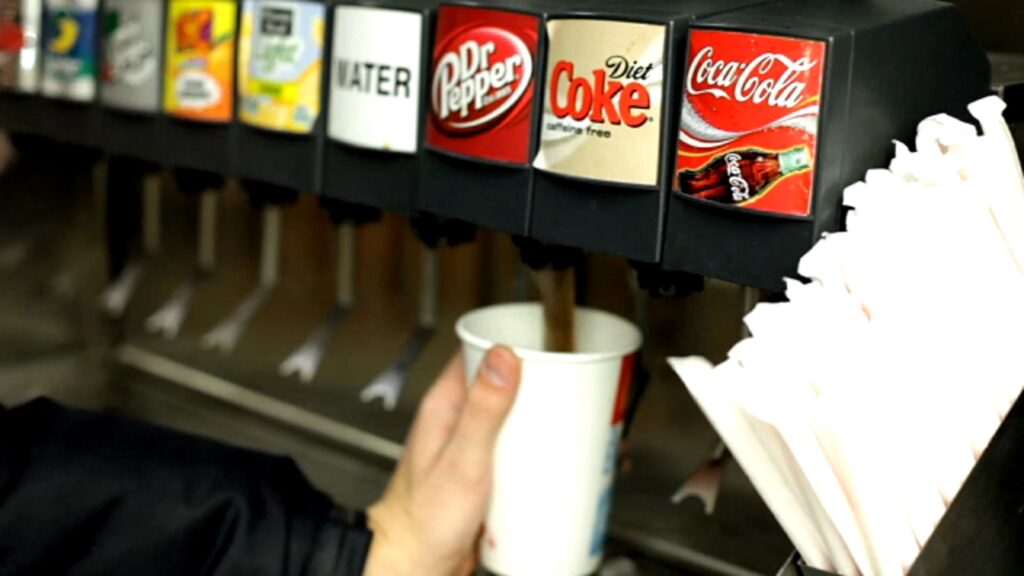

As of October 1st, 2025, restaurants and cafes in the UK can no longer offer unlimited refills of sugary drinks. This applies to businesses with 250 or more employees.
The government says it’s about tackling obesity and reducing pressure on the NHS. Venues can no longer offer unlimited top-ups of sugar-sweetened beverages like cola and lemonade.
Supporters call it a bold public health move. Critics argue it’s government overreach. They say individuals should have the freedom to decide what they put in their bodies.
But here’s what really matters: This is part of a broader trend. Governments worldwide are getting more involved in food choices. The restriction of products high in fat, sugar, or salt by volume pricing came into force on October 1, 2025. Multi-buy deals on unhealthy foods are also banned now.
Whether you agree with it or not, this signals a shift in how governments approach personal freedoms versus public health costs. And once these types of regulations start, they rarely reverse.
For more on how policy changes are reshaping our world, check out digital IDs and billion-dollar losses that shocked everyone this week.
Bike Theft Is Now Basically Legal in the UK


Here’s something that should concern everyone, whether you own a bike or not.
The British Transport Police announced they will not investigate bike thefts outside train stations if the bike has been left there for more than two hours. They’re also not investigating bikes stolen worth less than £500, or thefts without clear CCTV evidence.
Think about that for a second. You commute to work by bike. You lock it up at the train station in the morning. You come back eight hours later and it’s gone. The police won’t even investigate.
Since 2019, 365,706 bike thefts across England and Wales have gone unsolved, accounting for 89% of all cases. That means 200 bike thefts go unsolved every single day. Only 2% of cases result in a suspect being charged.
The police say resource constraints force them to prioritize. But critics argue this effectively decriminalizes theft. If there’s no consequence for stealing bikes, why would thieves stop?
This isn’t just about bikes. It’s about what happens when law enforcement decides certain crimes aren’t worth pursuing. What’s next? Car thefts under a certain value? Package theft? Where does the line get drawn?
And more importantly, what does this mean for property rights when the state can selectively decide which thefts matter?
Canada’s New Bill Lets the Government Shut Down Your Internet
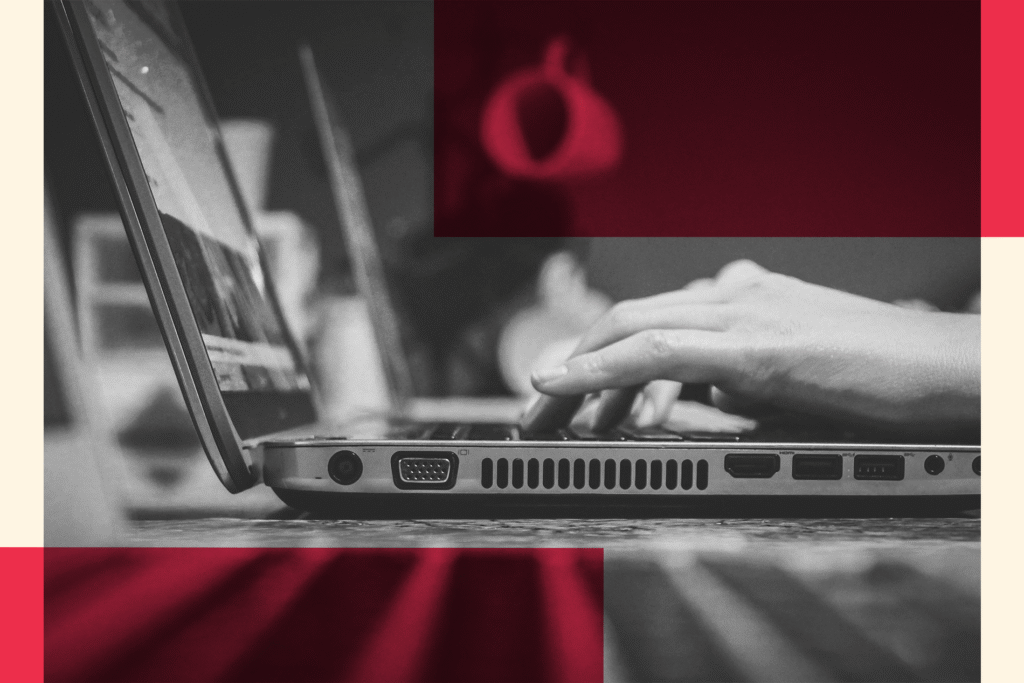

Bill C-8 has been making waves in Canada, and for good reason.
The bill allows the industry minister to secretly order telecom companies to cut off Canadians’ phone or internet service to “secure” the system. Fines for non-compliance go up to $15 million.
Critics say the bill lacks safeguards and could be abused against political dissidents. They point to the 2022 Freedom Convoy, when the government froze bank accounts of protesters and supporters. That’s now being cited as precedent for this type of power.
Oversight is minimal. There’s only post-action judicial review, despite claims from the Liberal party that internet access is a human right akin to free expression.
Supporters argue it’s necessary for cybersecurity. Opponents see it as a dangerous expansion of government control over communication.
Here’s why this matters even if you don’t live in Canada: Once one Western democracy implements this kind of power, others watch closely. If it works in Canada, expect similar bills elsewhere.
Your internet and phone aren’t just conveniences. They’re your connection to banking, work, family, and information. The ability for a government to shut that down without warning should concern everyone.
Nvidia CEO: Plumbers Will Win the AI Race, Not Programmers
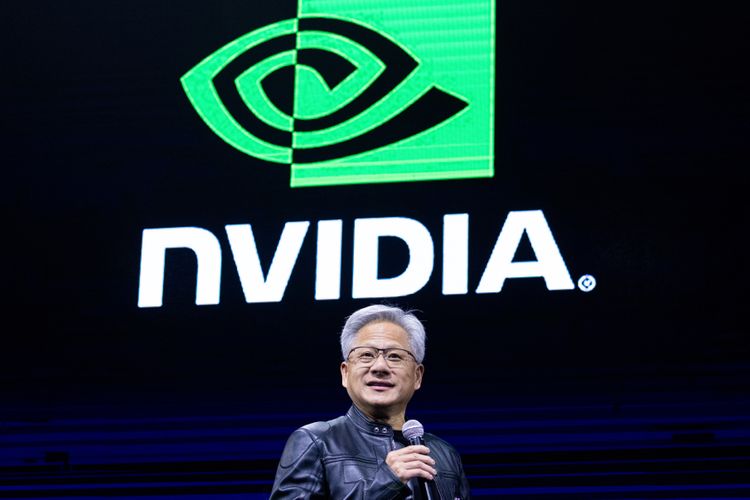

Jensen Huang, Nvidia’s CEO, dropped a bombshell that contradicts everything you’ve been told about AI and jobs.
He told reporters that the biggest winners of the AI race may not be software engineers. Instead, plumbers, electricians, and carpenters will see surging demand.
Why? Because AI infrastructure requires massive physical buildouts. Data centers need to be constructed, wired, and maintained. Cables need to be laid. Electrical systems need to be installed and upgraded.
The future of AI depends as much on the people who lay cables and wire circuits as it does on the coders designing the systems.
This is huge for anyone worried about AI taking their job. Skilled trades are becoming more valuable, not less. While everyone’s rushing their kids into computer science degrees, there’s a shortage of electricians and plumbers who can actually build the infrastructure AI needs.
From an investment perspective, this means looking at construction companies, electrical contractors, and trades training programs. The AI boom isn’t just about software. It’s about the physical world that makes it possible.
Warren Buffett’s Biggest Deal in Years: $9.7 Billion for OxyChem
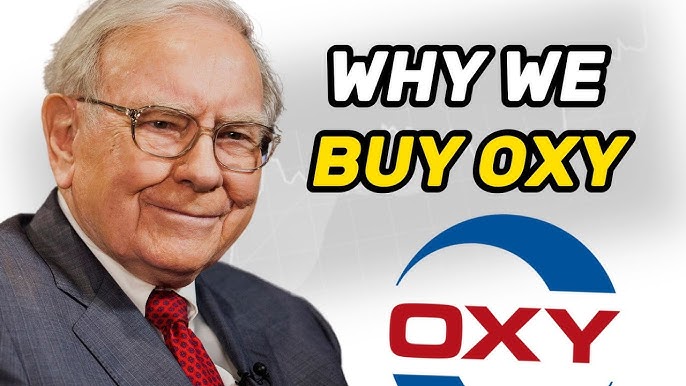

Berkshire Hathaway just made headlines with its largest acquisition in three years.
Buffett’s firm is buying Occidental Petroleum’s petrochemical unit, OxyChem, for $9.7 billion. This is significant for several reasons.
First, Buffett doesn’t make impulsive moves. If he’s dropping nearly $10 billion on petrochemicals, he sees long-term value that others might be missing.
Second, this goes against the trend of divesting from fossil fuel-related assets. While other investors flee anything connected to oil and gas, Buffett’s doubling down on the chemistry side of petroleum.
Third, petrochemicals are in everything. Plastics, fertilizers, pharmaceuticals, textiles you name it. Even as the world shifts toward renewable energy, demand for petrochemical products continues growing.
For you and me, this signals where smart money sees opportunity. Buffett’s track record speaks for itself. When he makes his biggest deal in years, it’s worth paying attention to the sector he’s betting on.
EA Shutting Down Four Major Games in October 2025


Electronic Arts confirmed it’s pulling the plug on four games this month: NHL 21 on October 6th, Need for Speed: Rivals on October 7th, Madden NFL 22 on October 20th, and FIFA 23 on October 30th.
This might seem like just a gaming story, but it raises important questions about digital ownership.
When you buy a digital game, you don’t really own it. You’re licensing access. And companies can revoke that access whenever they want. Players who paid full price for these games are now losing access entirely.
This trend extends beyond gaming. Digital books, movies, music anything you “buy” digitally can disappear if the company decides to shut down servers or pull licenses.
The lesson? Physical ownership still has value. And if you’re investing in digital platforms, understand that their revenue model increasingly relies on subscriptions and recurring purchases rather than one-time sales.
Snapchat Plans to Charge for Storage Over 5GB


Snapchat is rolling out an update that will charge users for storing Memories beyond 5GB.
The company’s betting that users are so attached to their saved content that they’ll pay to keep it. This follows a broader trend of free services adding paywalls once they’ve built a large user base.
From a business perspective, it makes sense. Storage costs money. Free users generate data but not revenue. Converting even a small percentage to paid subscribers can significantly boost profitability.
But for users, it’s another monthly subscription in an already subscription-heavy world. At some point, subscription fatigue sets in. People start cutting services they can live without.
The bigger question: What happens to your memories if you don’t pay? Do they delete them? Archive them indefinitely? This ambiguity around digital content preservation is becoming a real issue.
Barron Trump Made $80 Million in Crypto


Barron Trump, son of President Donald Trump, has reportedly earned more than $80 million from Bitcoin and digital assets, raising his net worth to $150 million at just 19 years old.
Much of this success comes from World Liberty Financial, the Trump family’s crypto platform launched in late 2024. Barron serves as co-founder and Web3 ambassador, working alongside his brothers Eric and Donald Jr.
The platform has already generated more than $550 million in token sales, fueling major family profits. His involvement underscores his growing influence within the Trump empire and the broader crypto industry.
Whether you love or hate the Trumps, this illustrates how connected families can leverage platforms and influence to generate massive wealth in emerging markets like crypto.
For the rest of us, it’s a reminder that crypto remains a high-risk, high-reward space. Early movers with resources and connections can make fortunes. But for every success story, countless others lose money.
If you’re interested in crypto opportunities, check out 12 stories about money, technology, and fraud that will change how you see the world.
Meta Signs $14 Billion AI Deal with CoreWeave


CoreWeave has signed a deal to supply Meta with as much as $14.2 billion worth of computing power through December 2031.
This underscores the massive costs of developing and running advanced AI models. Building AI isn’t cheap. It requires enormous computational resources, specialized hardware, and infrastructure.
CoreWeave shares jumped 9.8% in premarket trading following the announcement. Meta shares remained relatively unchanged, likely because the market already expected massive AI spending.
For investors, this highlights the picks-and-shovels approach to AI investing. Instead of betting on which AI company will win, invest in the infrastructure providers supplying the computing power everyone needs.
Companies like CoreWeave, Nvidia, and data center operators are positioned to profit regardless of which specific AI applications succeed.
Fast Food Ice Contains Fecal Bacteria


A BBC Watchdog investigation tested ice from 30 UK fast-food restaurants including McDonald’s, Burger King, and KFC. More than half of the samples contained fecal bacteria, and several had significant levels.
Experts explained that this contamination typically occurs when workers handle ice with unwashed hands or when machines aren’t properly cleaned and maintained. Similar problems are documented in the United States, where investigations found fast-food ice samples carrying more bacteria than toilet water.
This isn’t just gross. It’s a public health issue. Food safety standards exist for a reason, and when major chains can’t maintain basic hygiene, it raises questions about what else they’re cutting corners on.
For consumers, it’s a reminder to pay attention to cleanliness when you eat out. For investors in restaurant chains, it’s a liability risk that could result in lawsuits, regulatory fines, and reputation damage.
COVID Vaccine Sales Are Crushing Biotech Billionaire Fortunes


Shares in Moderna and BioNTech have imploded since their 2021 peaks, shaving billions of dollars from their founders’ fortunes. Growing anti-vaccine sentiment and potential policy changes under RFK Jr.’s FDA leadership will likely make the situation even worse.
The companies that became household names during the pandemic are now struggling as demand for COVID vaccines plummets. Moderna’s stock is down significantly from its peak, and BioNTech faces similar challenges.
This is a cautionary tale about investing in companies that benefit from temporary crises. The fortunes made during COVID were real, but they weren’t sustainable once the emergency ended.
For investors, this emphasizes the importance of distinguishing between short-term opportunities and long-term value. Biotech companies with diverse pipelines and multiple revenue streams are far safer bets than one-product wonders.
China Buying Up British Schools
China has been acquiring British schools, raising concerns about educational influence and long-term strategic positioning.
Critics worry about curriculum influence, data collection on students, and cultural reshaping. Supporters argue it brings investment and resources to struggling institutions.
This fits into a broader pattern of Chinese investment in Western infrastructure, technology, and institutions. Whether it’s ports, telecommunications, or education, the strategy appears focused on long-term influence rather than short-term profit.
For parents and policymakers, this raises questions about sovereignty, data security, and who controls the education of future generations.
Emirates Bans Power Banks on Flights Starting October 1st


Emirates announced strict new rules on power banks effective October 1, 2025. Passengers can carry one power bank under 100 Watt Hours in cabin baggage only, but it must be stowed under the seat or in the seat pocket in front of you.
Using or charging power banks onboard is no longer allowed, and they cannot be placed in overhead lockers. Checked luggage remains off-limits for power banks entirely.
The airline says the move follows a safety review, aiming to reduce risks from lithium batteries amid rising incidents in the aviation industry.
This is part of a growing trend of airlines tightening restrictions on lithium-ion batteries due to fire risks. If you travel frequently, expect more airlines to follow suit.
The Bottom Line
This week brought us closer to living 250 years, showed us new ways governments control our choices, revealed which jobs AI will actually create, and demonstrated how quickly fortunes can be made or lost in emerging industries.
The world is changing faster than most people realize. The question is: Are you changing with it, or getting left behind?
Want to stay ahead of the curve on money-making opportunities, emerging tech, and the stories that actually matter? Join my Free Community where I break down complex topics into actionable insights you can use immediately.
Which story surprised you the most this week?
Did the longevity drug blow your mind? Are you concerned about government overreach? Do you think skilled trades are the future? Drop a comment below and let’s discuss. I want to hear what you’re thinking about these changes.
Trading Risk Disclosure: This article discusses various topics including biotechnology investments, cryptocurrency, and financial markets for informational and educational purposes only. Nothing in this article constitutes financial advice, investment recommendations, or medical guidance. Cryptocurrency and biotech investments carry substantial risk, and most projects fail. Any investment decisions should be made only after consulting with qualified financial advisors who understand your personal situation. Health and medical decisions should be made in consultation with licensed healthcare providers. Past performance does not guarantee future results, and you can lose money investing in any asset class discussed here.

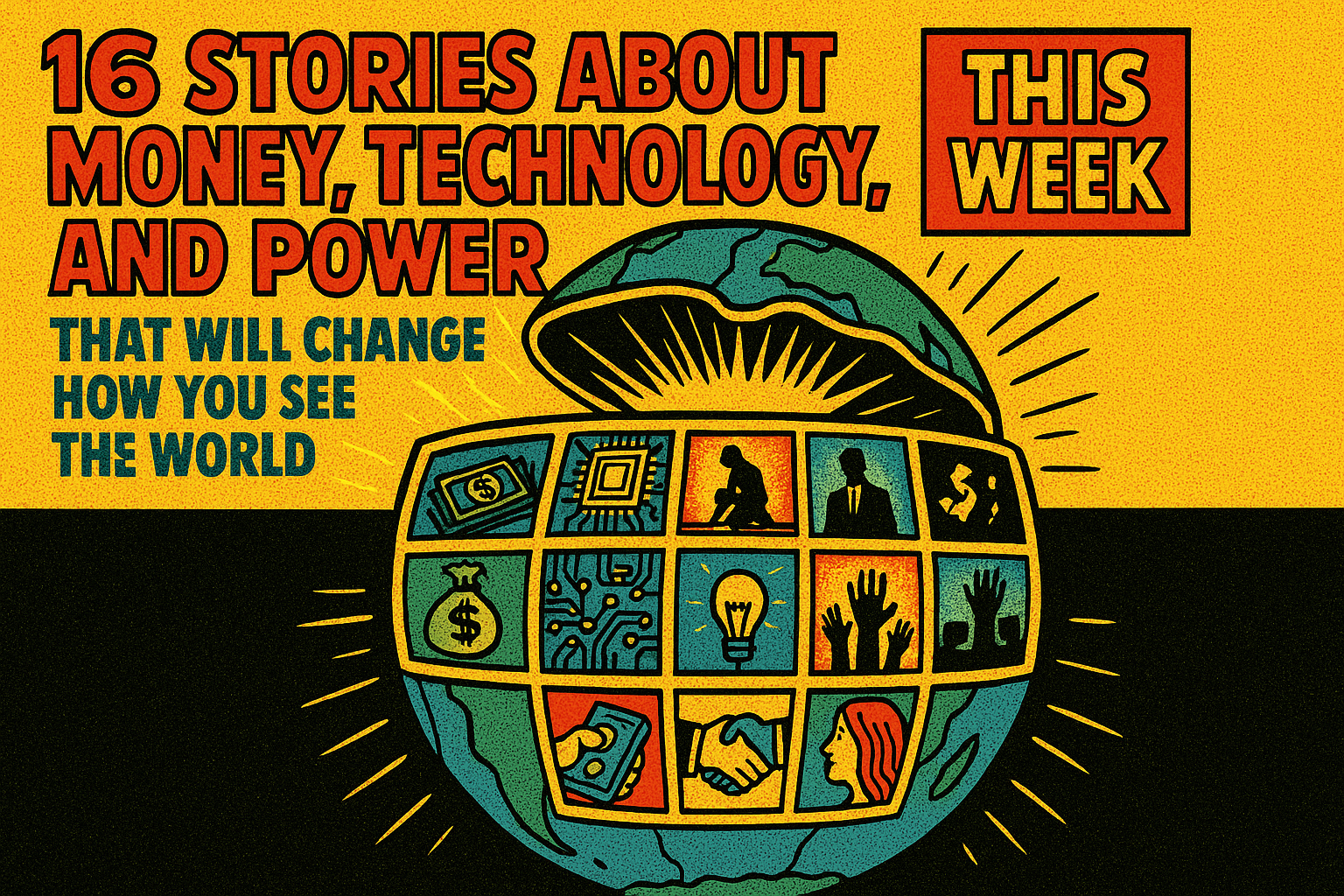
0 responses to “16 Stories About Money, Technology, and Power That Will Change How You See the World This Week”